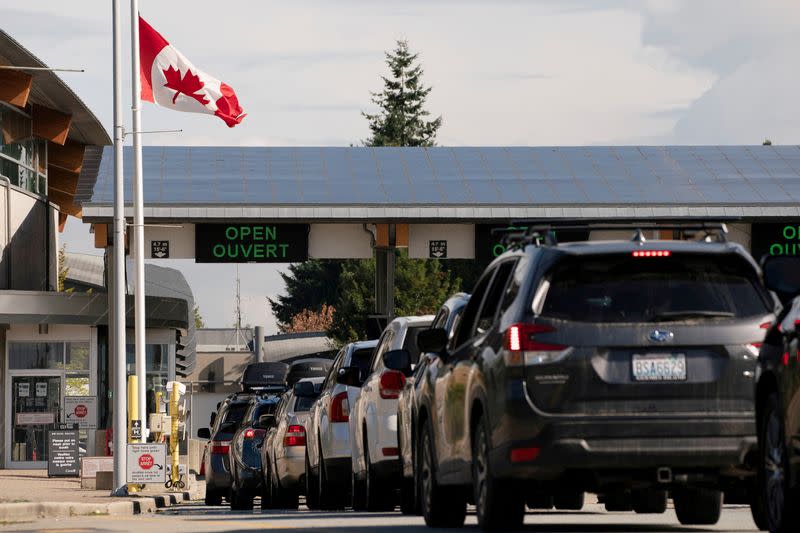Canadian border guards could strike Friday, most required to work

TORONTO (Reuters) - Thousands of Canadian border guards at airports and land crossings with the U.S. were poised to strike Friday as they worked to reach an agreement with their employer, the federal government.
But with 90% of frontline border officers with the Canada Border Services Agency (CBSA) designated essential workers, according to the government, it was not clear what form that strike could take.
The U.S. is Canada's biggest trading partner, with an average of C$3.6 billion ($2.63 billion) worth of goods and services crossing the border in both directions combined in 2023, according to the Canadian Chamber of Commerce.
The two sides have been negotiating with the assistance of a mediator this week and talks were ongoing Thursday morning, a Public Service Alliance of Canada (PSAC) spokesperson said, with a strike deadline of 4 p.m. ET (2000 GMT) Friday.
Sticking points include wages, remote work, retirement benefits and workplace protections, according to the union.
"The border will remain open and safe," CBSA spokesperson Luke Reimer said in an email Tuesday.
He said about 4,870 of the agency's 5,400 frontline officers are designated essential, meaning they cannot legally stop working.
"Border services officers occupying essential services positions cannot work to rule and cannot intentionally slow down border processing," Canada's Treasury Board said in a statement Wednesday, adding that the CBSA "will take progressive disciplinary action or other measures" against essential workers "who engage in illegal job action."
But the discretion border officers have to stop, question and search travelers could slow cross-border traffic, said Carleton University associate professor of management Ian Lee.
"A slowdown where they really did work to rule would be just catastrophic at Pearson (Airport in Toronto) and Vancouver and Montreal," he said.
"The pressure that would be brought to bear on the government … will be so great they will have to intervene," for example through binding arbitration or, as a last resort, back-to-work legislation, Lee said.
($1 = 1.3688 Canadian dollars)
(Reporting by Anna Mehler Paperny; Editing by Rod Nickel)


